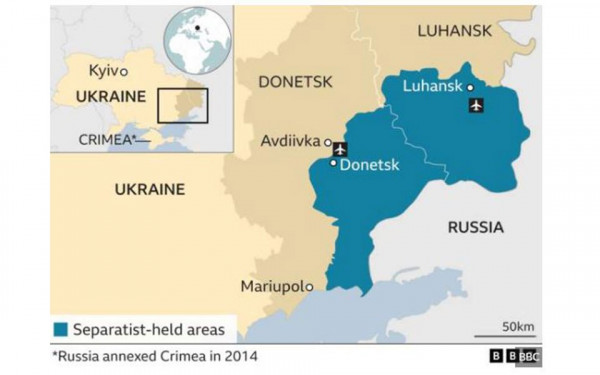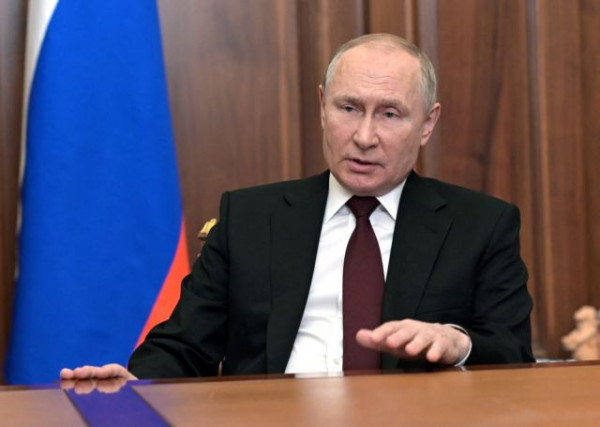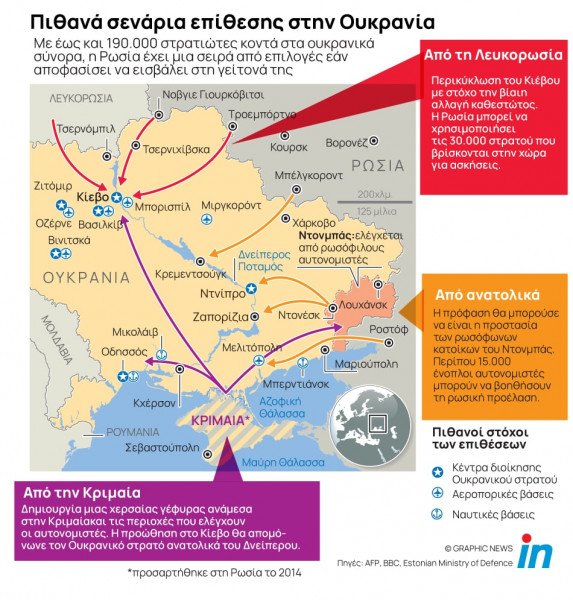President of Russia Vladimir Putin Recognized the independence of two Moscow-backed separatist areas in the east UkraineDonetsk and Lukansk, a step that could significantly increase the risk of a general conflict with Kiev.
The international community is now waiting to see what will happen after Putin orders Russian forces to move to independent territories in the east of the country.
At a dramatic turn of events on Monday afternoon, Putin said Russia would recognize the independence of the two self-proclaimed pro-Russian republics in eastern Ukraine, which would then send Russian troops to the region to complete the “peacekeeping mission”, Opera and so on.
Many fear that sending troops to the so-called Donetsk People’s Republic and the so-called Luhansk People’s Republic would be a precursor to a large-scale invasion of Ukraine.
At the moment, the important question is whether Russia will recognize all of these territories with the territories it occupied in 2014, which could mean further escalation against Ukraine’s territorial integrity.
Separatist forces currently control more than a third of the self-proclaimed territories in Donetsk and Lukansk. The other two-thirds are still under Ukrainian control.
What is Moscow planning?
The messages sent by Moscow so far in this regard are contradictory. Perhaps strategic ambiguity, perhaps Putin did not tell anyone else what he was planning.
This is because the Kremlin spokesman Dmitry Peshkov said that the recognition of the independence of Donetsk and Lukansk included areas currently under Ukrainian control and not controlled by pro-Russian separatists. During the meetings of the two houses of the Russian Parliament, President Putin clarified the following:
Today Moscow recognizes the self-proclaimed “Donetsk and Luhansk People’s Republics”, which are not internationally recognized to the extent that “their leaders exercise their powers”.
As explained by the Russian Deputy Minister in charge, the agreements are valid for ten years and are granted their automatic extension for a period of five years by mutual consent.
However, contrary to the previous statement of the Russian Foreign Minister, the statement came from Peshko’s spokesman following Moscow’s recognition of the independence of the Donetsk and Luhansk People’s Republics on the border they had announced.
“Within those boundaries, they existed and declared themselves,” Mr. Peshkov said in a related question that it “marked the moment when these two republics were announced” and declined to give further details.
People are waiting for Russia’s next move
Now, Putin’s closest observers are trying to understand what might happen next and Putin’s next moves.
Said Andrew Wood, Saddam House’s Russia and Eurasia partner and former British ambassador to Russia. CNBC Putin’s latest move on Tuesday shows that he is “absolutely unbelievable.”
“No one knows where he will end up, but the logic is that at least he will stop if he has full control of Ukraine’s policy, that is, he will try to establish his own rule in Ukraine and rule the country. In other words, he must do as he did with Belarus to keep the country under his control. Has been his goal.
On Tuesday, Wood, CNBC’s former ambassador to “Squawk Box Europe,” said in a statement that Putin’s recent actions were “not in Russia’s favor” and that “the Minsk agreement has now become a piece of paper, so we are in crisis.” A kind of anarchy “.
Wood added that military pressure would increase within Ukraine beyond its borders as more Russian troops are deployed in eastern Ukraine.
Tensions have risen in recent months since Putin deployed more than 100,000 troops on Russia’s border with Ukraine, and earlier this month conducted massive military exercises with Belarus.
“Only Putin knows whether he will stop here or whether the move by Russian troops to Donbass will be another step towards the occupation of independent Ukraine,” Holger Nilsson of the Bernberg Bank said.
If Putin stops here, sanctions will weaken the Russian economy over time, but the impact on the rest of the developed world will be minimal, the economist said. After a while the markets will return to normal.
But if Moscow invades Ukraine, it will be the worst geopolitical threat since the 1962 Cuban Missile Crisis, and according to Bernberg, the economic, financial and political impacts will be on three levels.




